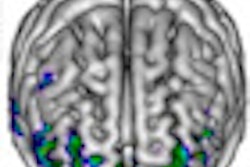With a unanimous 16-0 decision, an advisory committee of the U.S. Food and Drug Administration (FDA) voted on January 20 to conditionally recommend approval of Eli Lilly's PET imaging agent Amyvid (florbetapir) for detecting beta amyloid plaque deposits that could be precursors to Alzheimer's disease.
The FDA's Peripheral and Central Nervous System Drugs Advisory Committee stipulated in its decision that a training program be made available for readers of PET images acquired with Amyvid to reduce inconsistent interpretations within the patient population intended for the clinical application.
"I do think [beta amyloid information] has clinical utility. I do think the drug measures the binding of amyloid. But, for me, it's a problem that the readings are, I think, significantly inconsistent," said advisory chair Britt Anderson, MD, PhD, assistant professor of psychology at the University of Waterloo in Ontario, during today's public hearing. "Is that because the image doesn't contain the information or because the readers aren't getting the information that's there? Personally, I think there is collateral evidence, in terms of the other data provided, that the information is in the scan. That suggests that it is more of the reader extracting the information."
Initial vote
Prior to its conditional approval of the PET imaging agent, the panel voted 13-3 to reject florbetapir's application as submitted by Eli Lilly, with the majority of panelists deciding that available data did not warrant approval.
Anderson added that there are "opportunities for professional education that would allow readers to achieve an improved performance with the information that's available in the scan provided."
Amyvid is the first beta amyloid imaging compound to enter multicenter, investigational new drug (IND) clinical studies in the U.S. It also has been studied in more than a dozen trials in more than 700 patients, ranging from cognitively normal individuals to people with Alzheimer's disease. Other clinical studies are under way in Europe, South America, Australia, and Asia.
Eli Lilly acquired Amyvid in December 2010 through its acquisition of molecular imaging developer Avid Radiopharmaceuticals of Philadelphia.
Amyvid study
Earlier this week, a study published in the Journal of the American Medical Association found that Amyvid showed promise in preliminary research to detect the presence of beta amyloid in the brains of living patients to potentially confirm Alzheimer's disease.
The study, led by Christopher M. Clark, MD, of Avid Pharmaceuticals, concluded that florbetapir PET images and postmortem results rated as positive or negative for beta amyloid agreed in 96% of the 29 individuals in the primary analysis cohort. Florbetapir PET images were rated as amyloid-negative in the 74 younger individuals in the nonautopsy cohort.
"This prospective imaging-to-autopsy study provides evidence that a molecular imaging procedure can identify beta amyloid pathology in the brains of individuals during life," according to the researchers.
By Wayne Forrest
AuntMinnie.com staff writer
January 20, 2011
Related Reading
PET with florbetapir may help detect Alzheimer's signs, January 18, 2011
Lilly wraps up Avid buy, lands FDA priority review, December 23, 2010
C-11 PiB-PET shows first progression of Alzheimer's disease, December 16, 2010
Avid, Siemens begin florbetapir production, April 7, 2010
PET detects Alzheimer's disease likely to progress, December 15, 2009
Copyright © 2011 AuntMinnie.com



















